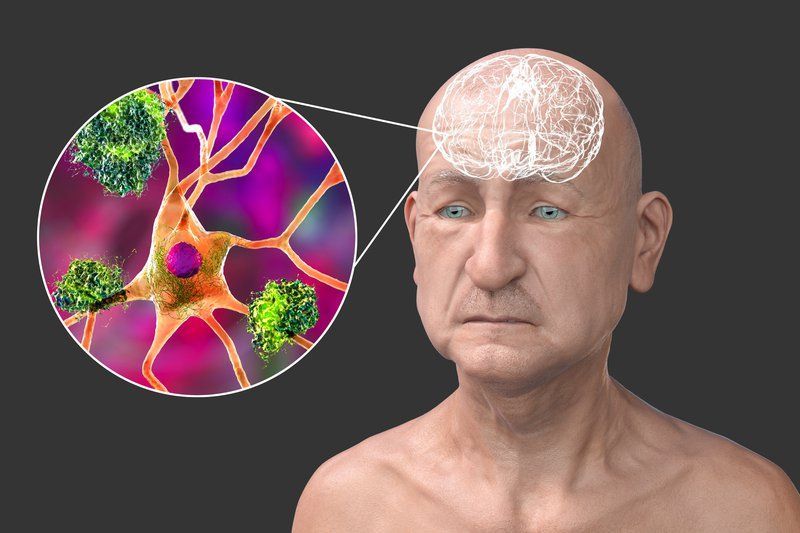BLOG
Key Differences Between Lewy Body Dementia and Alzheimer's
Understanding the complexities of acquired brain injury is vital in the context of memory care and assisted living. This comprehensive guide covers the causes, types, and prevalence, shedding light on its impact on individuals and families. Moreover, it explores evidence-based strategies for managing acquired brain injury, emphasizing the role of personalized care and innovative programs for holistic support.
Additionally, the guide highlights community resources, caregiver support networks, and technological innovations aimed at enhancing the quality of life for individuals. Furthermore, it emphasizes the significance of personalized care and empowerment strategies in fostering a supportive environment within memory care and assisted living settings.
Examining Onset Age and Symptom Progression
When comparing Lewy Body Dementia (LBD) and Alzheimer's disease, it becomes evident that the age of onset and symptom progression present distinct patterns for each condition. Here's a closer look at the unique aspects of onset age and symptom development:

Lewy Body Dementia (LBD)
LBD typically manifests between the ages of 50 and 85, with an average onset age of 68. Symptom progression in LBD often involves a combination of cognitive, motor, and psychiatric symptoms, leading to a complex clinical picture. The fluctuating nature of symptoms, including variations in attention and alertness, sets LBD apart from other neurodegenerative disorders.
Alzheimer's Disease
Alzheimer's disease commonly begins after the age of 65, with the majority of cases occurring in individuals over 85. Symptom progression in Alzheimer's is characterized by a gradual decline in memory, thinking, and reasoning abilities, often following a more predictable trajectory. While cognitive fluctuations are less pronounced in Alzheimer's compared to LBD, the steady deterioration of cognitive functions remains a hallmark of the disease.
By contrasting the age of onset and symptom development in LBD and Alzheimer's, a deeper understanding of the divergent clinical presentations of these conditions emerges. This comparison underscores the need for tailored approaches to diagnosis, care, and support, recognizing the distinct trajectories that define LBD and Alzheimer's disease.
Distinct Hallucinations in LBD
In Lewy Body Dementia (LBD), individuals often experience vivid and detailed visual hallucinations, setting this condition apart from Alzheimer's disease. Here's a closer look at the distinct nature of hallucinations in LBD:
- Visual Hallucinations: LBD is characterized by prominent visual hallucinations, where individuals may see people, animals, or objects that are not present. These hallucinations are often intricate and can be distressing for both the individual and their caregivers.
- Early Onset: Visual hallucinations are frequently one of the earliest symptoms of LBD, occurring in the early stages of the disease and serving as a key diagnostic feature.
- Fluctuating Nature: The fluctuating nature of hallucinations in LBD, where they may come and go or vary in intensity, adds to the complexity of managing this aspect of the condition.
Fluctuating Cognition in LBD vs. Alzheimer's
Lewy Body Dementia (LBD)
- Cognitive Fluctuations: Individuals with LBD often experience fluctuations in their cognitive abilities, leading to unpredictable changes in attention, alertness, and overall cognition.
- Attention and Alertness: These fluctuations can manifest as periods of confusion, disorientation, and variations in attention, making daily functioning challenging for both the individual and their caregivers.
- Impact on Daily Life:
The fluctuating nature of cognition in LBD can significantly impact the individual's ability to engage in activities of daily living and may contribute to heightened caregiver stress.
Alzheimer's Disease
- Gradual Decline: In contrast, Alzheimer's disease is characterized by a more gradual decline in cognitive abilities, with a progressive deterioration of memory, thinking, and reasoning skills over time.
- Steady Cognitive Decline: While individuals with Alzheimer's may experience fluctuations in cognitive performance, these are generally less pronounced compared to the fluctuating cognition observed in LBD.
- Predictable Trajectory: The predictable trajectory of cognitive decline in Alzheimer's often allows for more structured long-term care planning and support strategies.
By highlighting the differences in fluctuating cognition between LBD and Alzheimer's, readers gain a comprehensive understanding of the distinct cognitive dynamics inherent to each condition. This provides valuable insights for healthcare professionals, caregivers, and families, guiding them in tailoring care and support to address the specific cognitive challenges presented by LBD and Alzheimer's disease.
Implications for Care and Support: Lewy Body Dementia and Alzheimer’s
The identified differences between Lewy Body Dementia (LBD) and Alzheimer's disease have significant implications for care providers and families, shaping the approach to caregiving and support. Here are the practical implications to consider:

- Tailored Care Strategies: Understanding the distinct clinical presentations of LBD and Alzheimer's enables care providers to tailor interventions and support strategies to address the specific needs of individuals with each condition.
- Educational Initiatives: Caregivers and families benefit from targeted education and training programs that focus on recognizing and managing the unique symptoms and challenges associated with LBD and Alzheimer's.
- Holistic Support: Emphasizing a holistic approach to care that encompasses medical, cognitive, and psychosocial aspects is essential for meeting the diverse needs of individuals with LBD and Alzheimer's.
By addressing these implications, the article equips readers with actionable insights to enhance the quality of care for individuals with LBD. This understanding empowers care providers and families to navigate the complexities of these conditions with greater confidence and effectiveness, ultimately improving the overall well-being and quality of life for those affected by LBD and Alzheimer's disease.
Navigating the Complexities of Lewy Body Dementia and Alzheimer's
Exploring the complexity of Lewy Body Dementia (LBD) and Alzheimer's disease highlights the need to identify the distinct characteristics of each condition for effective clinical practice and caregiving. Essential insights include:
- Informed Decision-Making: Understanding the distinct characteristics of LBD and Alzheimer's is essential for informed decision-making regarding diagnosis, treatment, and care planning.
- Compassionate Care: Recognizing the complexities of these conditions allows for the delivery of compassionate and person-centered care that addresses the specific needs and challenges faced by individuals with LBD and Alzheimer's.
- Holistic Approach: Emphasizing a holistic approach that integrates medical, emotional, and social aspects is crucial for providing comprehensive support to individuals and families affected by LBD and Alzheimer's.
By reinforcing the significance of understanding the complexities of LBD and Alzheimer's, this article aims to empower healthcare professionals, caregivers, and families with the knowledge and insights needed to navigate these conditions with empathy, expertise, and a commitment to enhancing the well-being of those under their care.
The comparison between Lewy Body Dementia (LBD) and Alzheimer's disease underscores the need for tailored approaches to diagnosis, care, and support. The distinct differences in onset age, symptom progression, hallucinations, and cognitive fluctuations emphasize the importance of recognizing the unique attributes of each condition.
By understanding these complexities, healthcare professionals, caregivers, and families can make informed decisions and provide compassionate, holistic care that enhances the well-being of individuals affected by LBD and Alzheimer's.
Visit AssuredAssistedLiving.com for more information on memory care and assisted living services, offering comprehensive support options for individuals with Lewy Body Dementia and their families.
There is a better way. We are redefining memory care for the modern world.
Let us tell you more. Contact us today, or download our free Family Decision Toolkit guide for more information.
Sources
National Institute on Aging - What Is Lewy Body Dementia? Causes, Symptoms, and Treatments
Lewy Body Dementia - 10 Things You Should Know about LBD















